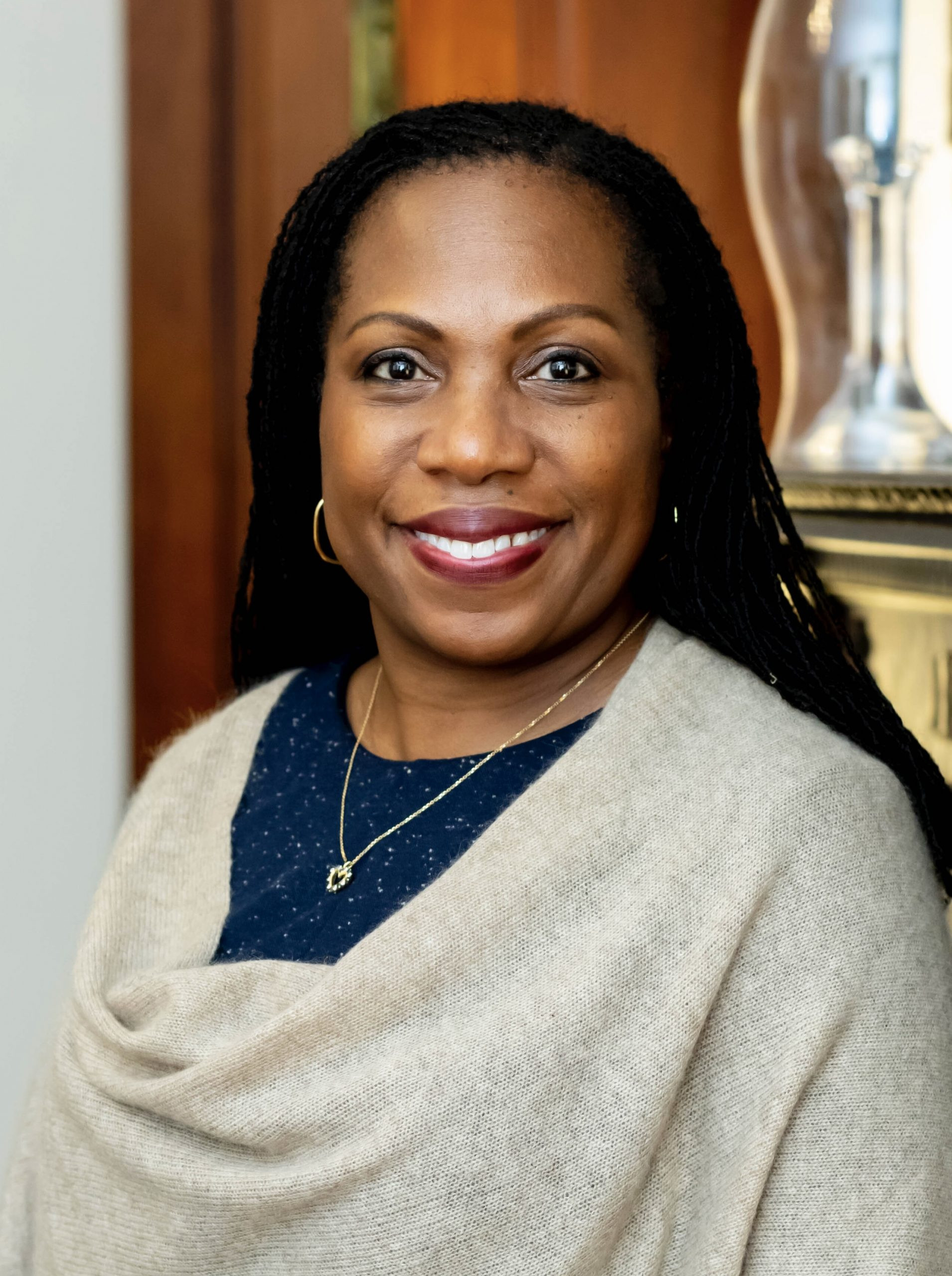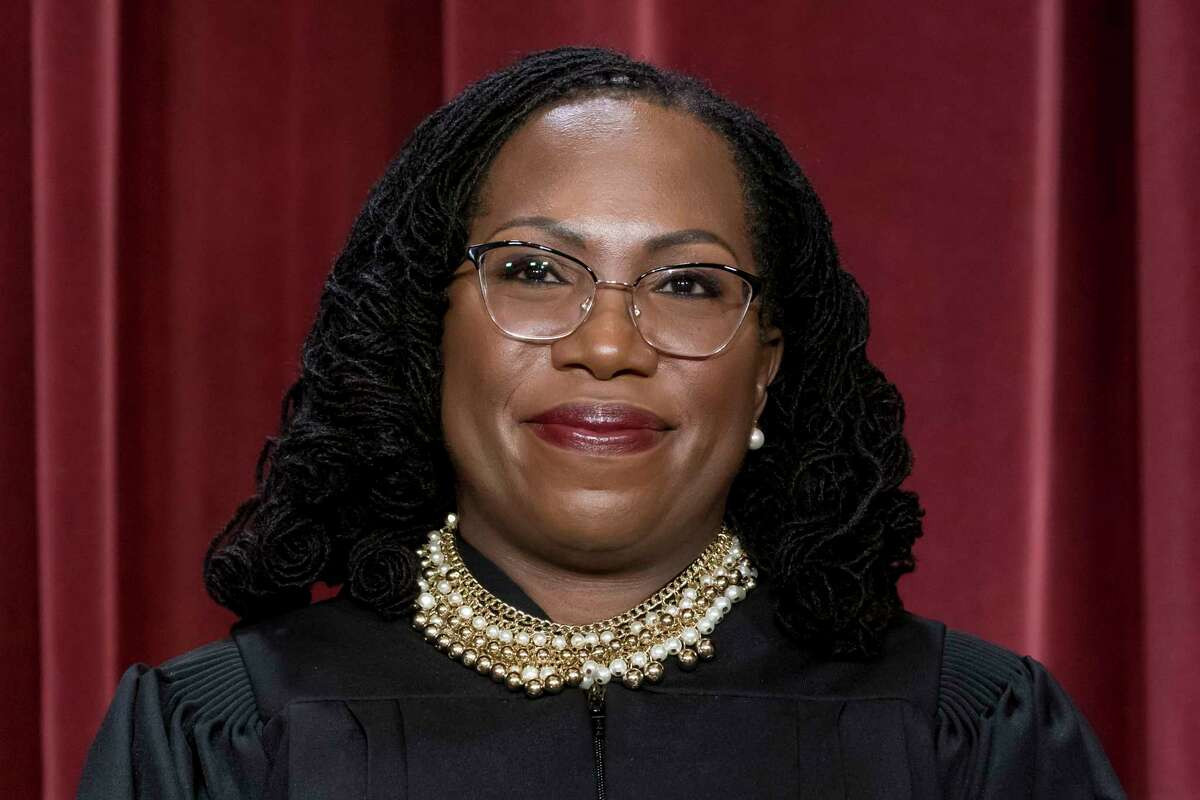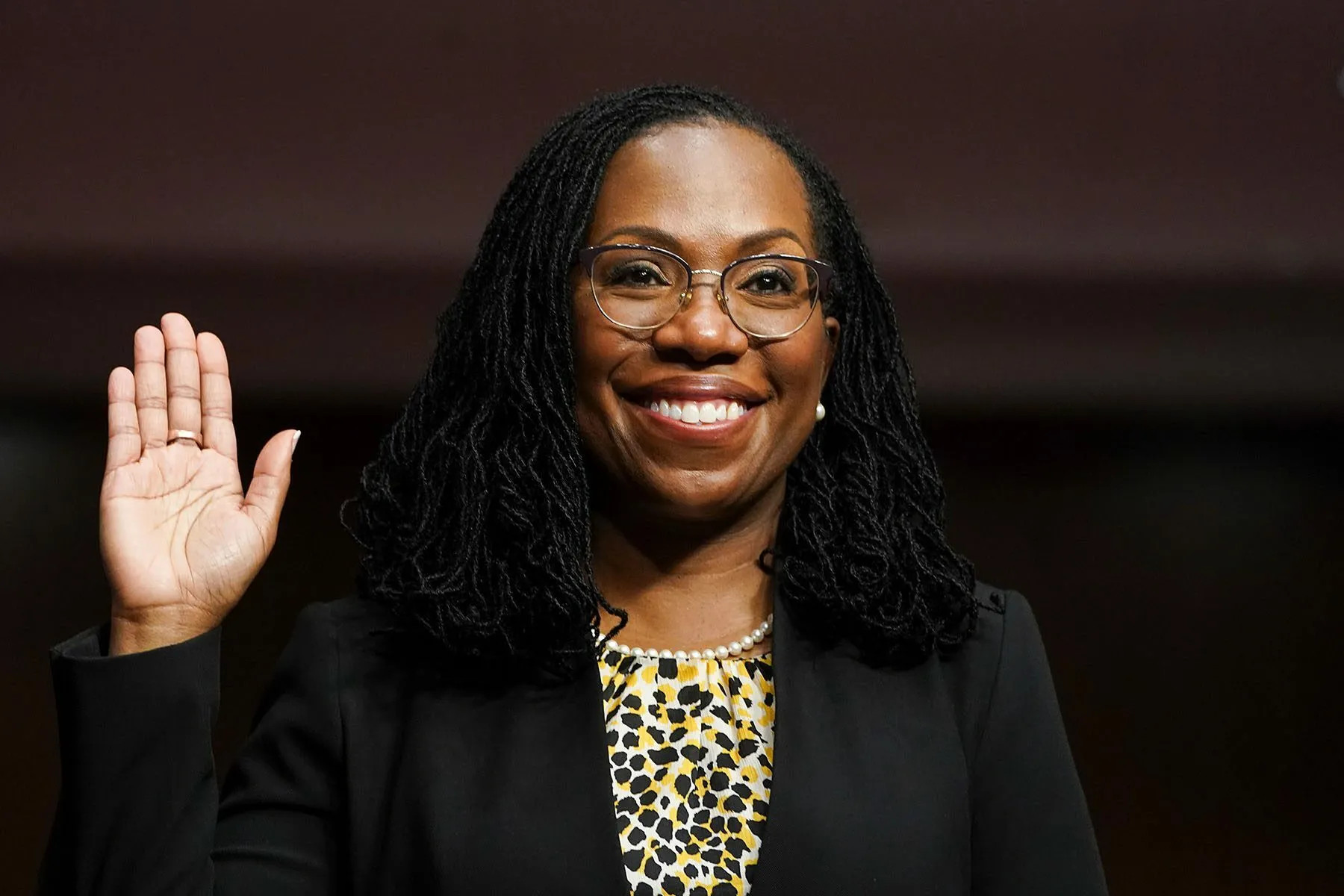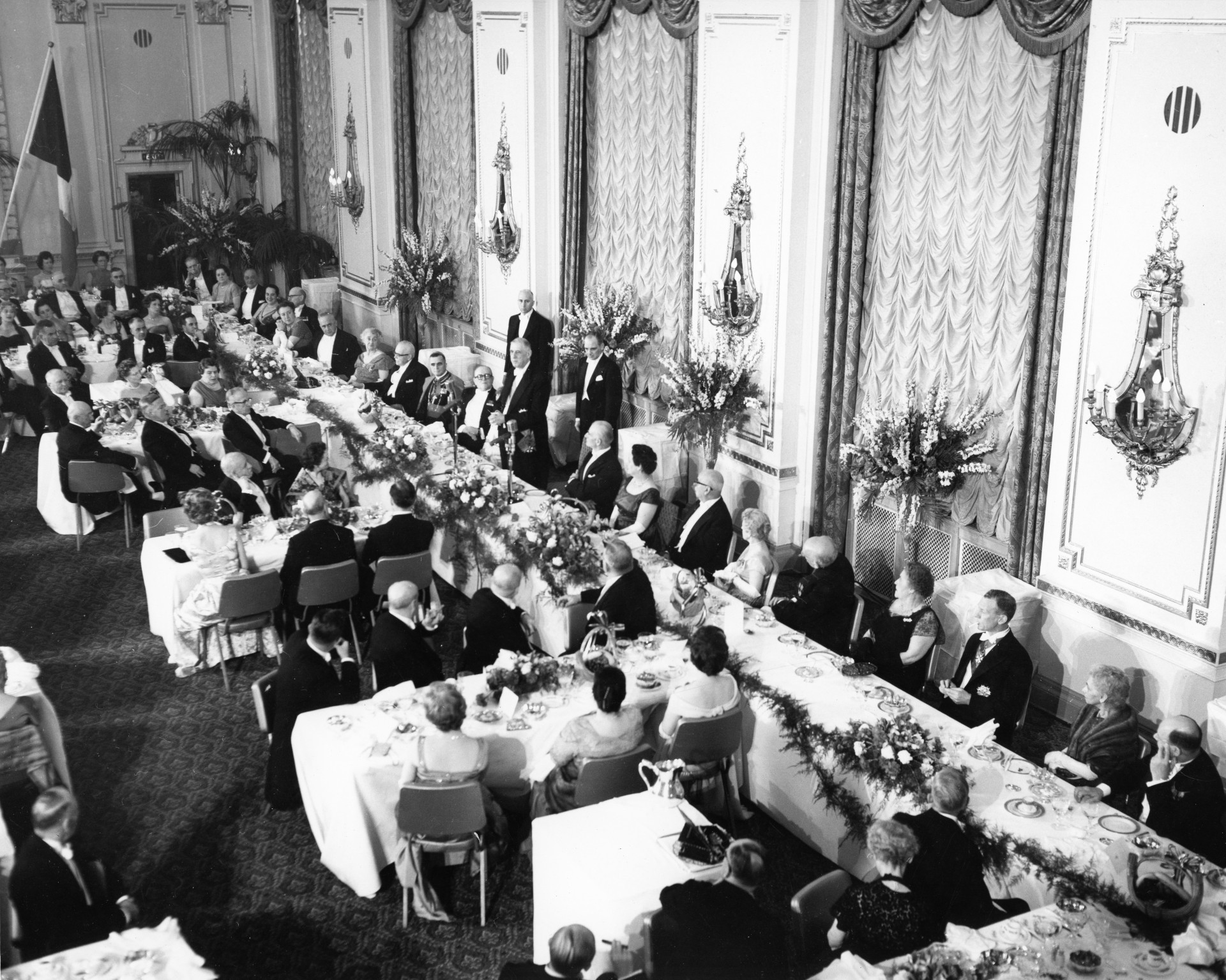Ketanji Brown Jackson's path to the Supreme Court was, as she tells it, unlikely. When President Biden nominated her in 2022 to replace retiring Justice Stephen Breyer, she found the national spotlight, quote, "white hot."
In her new book Lovely One, Justice Kentanji Brown shares the story of her family who shaped her, and how she navigates her personal life alongside her job, and the difficult journey she had to endure to get there.
"From my perspective, my arrival at the pinnacle of the legal profession was indeed groundbreaking, the culmination of a life spent toiling in relative obscurity, marked by my being suddenly thrust into the white-hot spotlight of national prominence," Jackson writes in her book, "Lovely One."
She added, "For many, my seat at the table represents the realization of our country’s highest ideals in a land that promises opportunity and equality to all."
"As I grew older, the sound of my name would often remind me of my aunt," Jackson writes. "And when people would tell me that my name was unique, creative, and beautiful, I would think of it as a tribute to the woman who had gifted it to me."
A Family Shaped by the Past
The book offers a personal and relatable narrative of a prominent justice at a time when the high court as an institution is under considerable scrutiny for a series of ethics scandals and politically charged rulings on abortion, guns and presidential immunity.
Jackson details impossible commutes and childcare stresses, parent-teacher conferences that don’t go as planned and stolen naps in Safeway parking lots borne of exhaustion.
But she also focuses on the triumphs at home and at work, including her relationship with her husband, Dr. Patrick Jackson, a prominent surgeon; a diagnosis that helped her eldest daughter thrive; and a nomination to a US District Court judgeship during the Obama administration.
One figure that marked her in particular was her grandmother Euzera.
"I talk in the book about how I recall going to church with her and with my mom and with my aunts. And it was really spiritually grounding for me as a young African-American girl, going to school in predominantly white spaces. We went to a black church in Miami and it was wonderful. And so seeing the other black people there, I think, really was very affirming for me."
Navigating the Spotlight
Jackson recalled some of the preparation she underwent for her confirmation in 2022, which at times grew testy as Republicans attempted to get her to define her judicial philosophy and explain some of her sentencing decisions as a federal trial court judge. In one-on-one interactions, the senators were “lovely,” she said, which helped her cope with the sometimes-brutal moments of her confirmation hearing.
"It was also super helpful in the hearing because we had had a conversation, so I said, ‘Oh, I see. You’re not really talking to me, right?’” she said. “’You must be talking to your constituents or to someone else.’"
She recalled some of the best advice she received from White House advisors during her preparation for the confirmation battle that helped her maintain her composure.
"You can get angry, or you can be a Supreme Court justice," she said she was counseled.
Jackson writes at length about her older daughter, Talia, who is academically gifted but who sometimes struggled with social interactions and transitions at school. After years of navigating what Jackson describes as “outright trauma,” her daughter was diagnosed with autism.
"There is no use in pretending that we weren’t completely devastated by the long-overdue confirmation of what I had suspected all along: that our older child was on the autism spectrum," Jackson writes. At the same time, Jackson described the news as something of a relief.
"We could end our denial," she writes.
"As Talia learned to advocate for herself through the years, she would educate us about how she was not ‘a person with autism’ but, rather, was autistic – by which she meant that her autism was an identity as much as her being Black and female," Jackson writes. "Autism was another lens through which she engaged the world, with full awareness of her strengths and mindful of her trials."
A Place in History
In thinking about her place in history, Jackson writes that the framers of the Constitution probably couldn’t have foreseen her story – her struggle and, ultimately, her successes.
"I highly doubt that any of them could have envisioned me, the descendant of enslaved Africans, the offspring of parents raised in the Jim Crow era, and a post–civil rights daughter, donning a borrowed robe to take her oath of judicial office and join the ranks of that esteemed branch of government," Jackson writes. "But that is the very genius of the framers’ foundational guarantee of liberty and justice for all."
The memoir is being published by Random House weeks before the Supreme Court begins a new term in October that will feature cases dealing with transgender rights, ghost guns and the federal regulation of e-cigarettes. Jackson reported receiving nearly $894,000 from Random House last year, though that is likely only the first of multiple payments.
While justices often publish memoirs after serving for at least several years on the court, Jackson’s went on sale just more than two years after she was seated – far faster than any of her colleagues’ recent books. Justices Brett Kavanaugh and Amy Coney Barrett have also announced book deals and Justice Neil Gorsuch published a book of his own earlier this summer.
Though she briefly touches on general legal controversies – such as those dealing with criminal sentencing – Jackson avoids mentioning cases before the court. At one point, she appears to question the way some of her colleagues are focusing on history in their rulings.
"Whose history," she asks, is being considered in those analyses?
"It is true that not everyone was represented at the table when our country was being birthed, or when our vaunted Constitution was being hammered out," she writes. "Yet the principles of liberty and equality that the framers adopted and that are now enshrined as the bedrock of our society mean that, today, every citizen can enter those rooms, protected by laws that recognize the civil liberties and human rights of all Americans."
At a time when so many Americans have questions about the integrity of the nation’s highest court, Jackson believes fiercely in the institution of which she is the newest member.
Especially when it comes to issuing opinions on the issues that divide Americans the most.
“I think that’s our responsibility, that’s our duty. That’s what the court’s role is in our system of government.”
That doesn’t mean reaching those decisions is easy:
“I think being on a panel of nine judges is a little challenging. Most of my judicial experience came from the district court where I was by myself. One judge in the courtroom. Your own courtroom. You control everything. And so collective decision making, I think, is a little challenging. And so having to kind of navigate that is surprising.”
Speaking at the famed Apollo Theater in Harlem on Tuesday night to promote the book, Jackson acknowledged that the court shouldn’t be exempt from public criticism – though she didn’t embrace any specific ideas for how to address its slipping support.
“The court is an institution that doesn’t have any other mechanism of enforcement than public trust. And so it’s particularly significant when there is a deficit of trust,” Jackson said. “This sort of how our system works – the judges, in my view, are not beyond criticism or constraint. We are a government branch. We are government servants and officials. And so in a democracy, the people decide the form and the structure of government. And so in order to decide that people have to be engaged, they have to debate these issues. And that’s what we see happening now.”
Born in Washington, DC, in 1970, Jackson in her memoir pins her good fortune, at least in part, on timing. She came of age at the dawn of the post-Civil Rights era, with a family that impressed upon her the significance of the moment for African Americans. Jackson not only capitalized on that opportunity but was fixated on meeting the challenges put before her.
“I had understood from the outset that my learning curve as a district court judge would be the steepest I had ever encountered,” she writes about taking her seat on the federal bench in 2013. “I intended to be unimpeachable as I climbed.”
At least some of the landmark anti-discrimination laws that Jackson cites in her book, including the Voting Rights Act of 1965, are now being challenged at the Supreme Court. During Jackson’s first term on the court, a majority of her colleagues barred consideration of race to ensure diversity on college campuses. Jackson dissented in one of those cases and recused herself in another, involving Harvard College, because she had previously served on the school’s board of overseers.



















